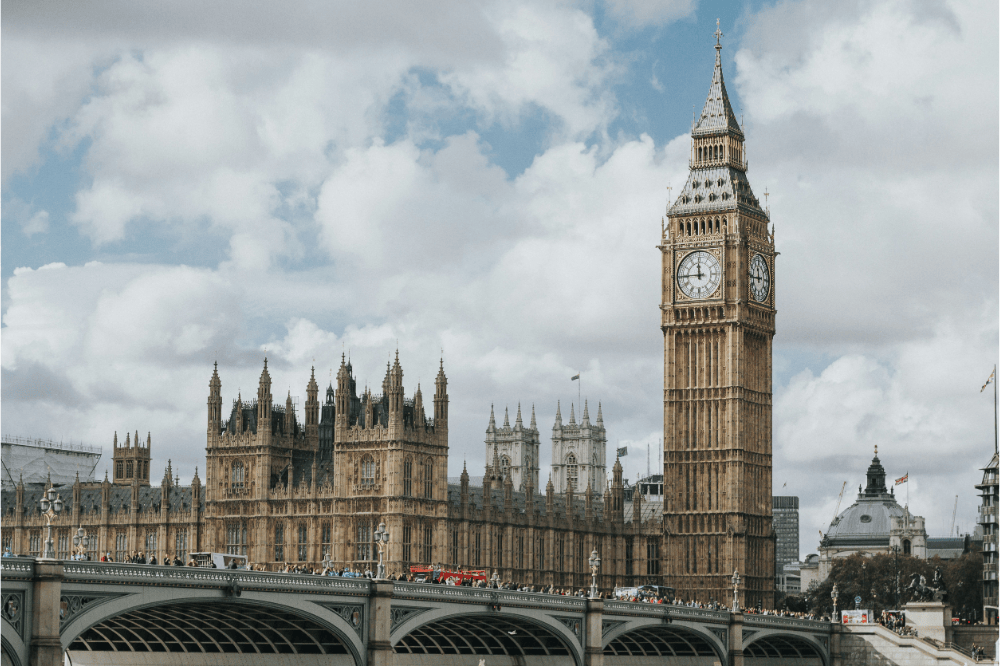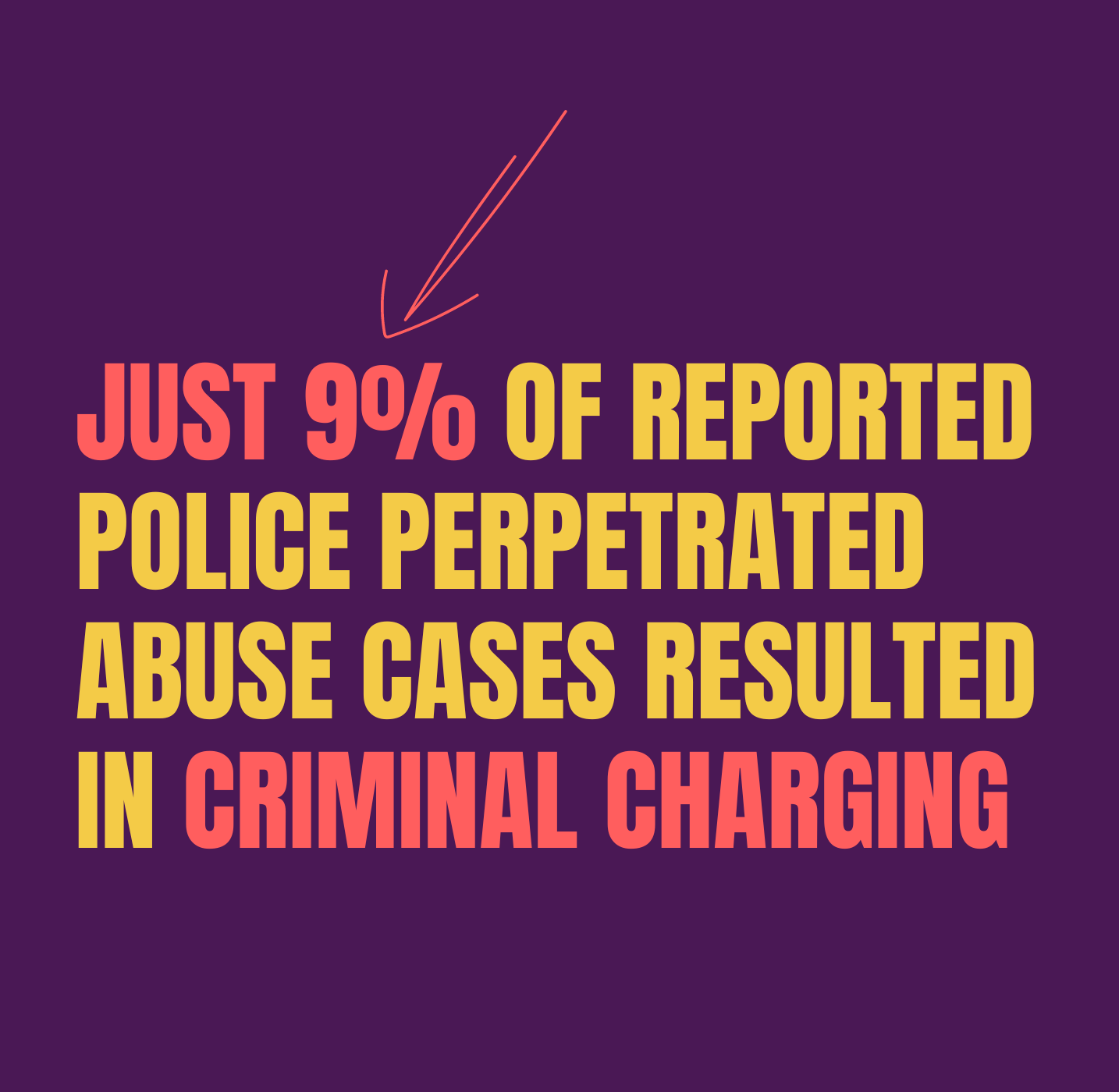 11 Jul
11 Jul
Today (30th June 2022), the College of Policing, Her Majesty’s Inspectorate of Constabulary and Fire & Rescue Service (HMICFRS) and the Independent Office for Police Conduct (IOPC) have published the findings of their joint investigation into the response to police-perpetrated domestic abuse. This report concludes the independent investigation of a super-complaint submitted by the Centre for Women’s Justice (CWJ) in March 2020.
The inspectorate has found ‘systemic deficiencies’ in the way some police forces in England and Wales deal with allegations of domestic abuse against their own officers and staff, causing significant harm to the public interest.
Today’s report lays bare the appalling situation facing victims and survivors abused by serving officers:
- Only 6 out of 104 women who reported police perpetrated domestic abuse (PPDA) would feel confident to report again
- Only 9% of reported PPDA cases resulted in criminal charging
- 39% of the files reviewed of criminal investigations were inadequate
- Only 40% of cases of PPDA reported resulted in any misconduct investigation, a staggering 75 cases from a sample of 122 had no misconduct investigation
- Only 8 cases out of the sample of 122 were referred to the IOPC
The End Violence Against Women Coalition (EVAW) is alarmed by the inspectorate’s findings, published in the same week that it was announced that the Metropolitan Police force are one of six police forces placed under Special Measures, due to its systemic failings relating to violence against women and girls, police perpetrated abuse, racism and misogyny.
These events reiterate a persistent and systemic issue within policing in relation to violence against women and girls: abuse of power and lack of accountability. They underscore the danger of the government handing an institution in dire straits even more powers in legislation, while also attempting to withdraw our ability to challenge police failures in the courts through the Rights Removal Bill.
The inspectorates stated that policing must be more consistently alive to a concern among victims that forces will ‘look after their own’ in these cases and, worse still, cause trouble for those who raise allegations.
These findings uphold many of the concerns raised by EVAW member CWJ, which reflected the accounts of 165 women. CWJ identified evidence not only of police failures to investigate police-perpetrated abuse, but also conduct amounting to corruption and the criminalisation and victimisation of some victims who report.
Today’s report makes a series of recommendations for reform, but these fall short of calls from women’s rights organisations. EVAW, the CWJ and other women’s rights campaigners have long called for all reports of domestic abuse by a police officer to be investigated by an external police force. Leaving police forces to investigate their own officers does not provide meaningful transparency, accountability or access to justice for survivors.
The super-complaint report recognises the particular problems faced by police officer victims who report fellow police officers for domestic abuse, and the fact that they have fewer rights than civilian victims, especially the absence of any right of appeal to the IOPC.
Andrea Simon, Director of the End Violence Against Women Coalition (EVAW), said:
“EVAW is once again appalled but completely unsurprised by these findings. Those working with marginalised groups have long known about the immense scale of police perpetrated abuse and the fact that there are often little to no consequences for perpetrators – but there often are for the victims themselves instead. This is reflected in the fact that the vast majority of those who reported would not feel confident in doing so again.
The police hold an incredible amount of power over the public and this must come with the highest standards of transparency, scrutiny and accountability. We know that violence against women and girls is a spectrum of harm. Individual acts of violence are not isolated incidents, they are interconnected. Officers abusing their power on duty may also be abusing their partners and family at home. Neither forms of abuse are currently likely to result in meaningful consequences. This cannot go on.
Public trust and confidence in the police is already dwindling. EVAW’s YouGov research showed that almost half of women (47%) and 40% of all adults polled have less trust in the police following the murder of Sarah Everard by a serving Met Police officer.
The super-complaint submitted by CWJ highlighted that survivors’ feeling of powerlessness is heightened when their perpetrator is a police officer as they are profoundly affected by the fact that their abuser is part of the system intended to protect them. How can women feel confident to report abuse to an institution that harbours perpetrators and doesn’t address their offending?
We expect the government and our justice system leaders to immediately deliver on commitments to victims and survivors, and implement the report’s recommendations along with those in CWJ’s super-complaint.
We also call on government to reconsider its plans to hand yet more powers to an institution demonstrating such systemic failings in relation to violence against women and girls. And we reject the audacious attempt to remove women’s ability to challenge police failures through the Rights Removal Bill.”
ENDS
Media contact
Sinead Geoghegan, Communications Manager, media@evaw.org.uk 07960 744 502
Recommended ARTICLES
 11 Jul
11 Jul
 09 Jul
09 Jul
 20 Jun
20 Jun

